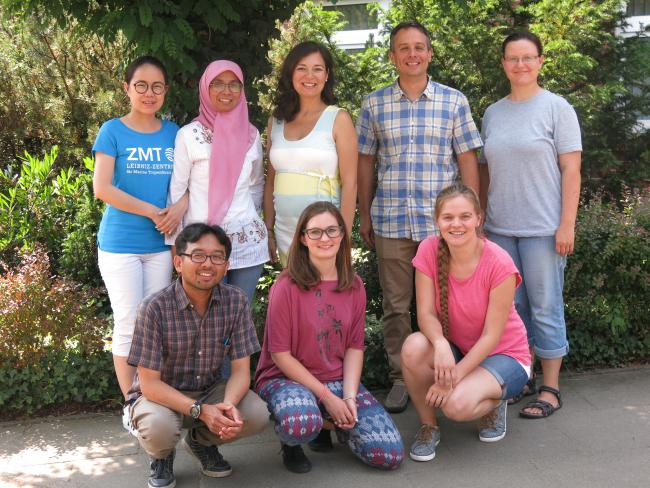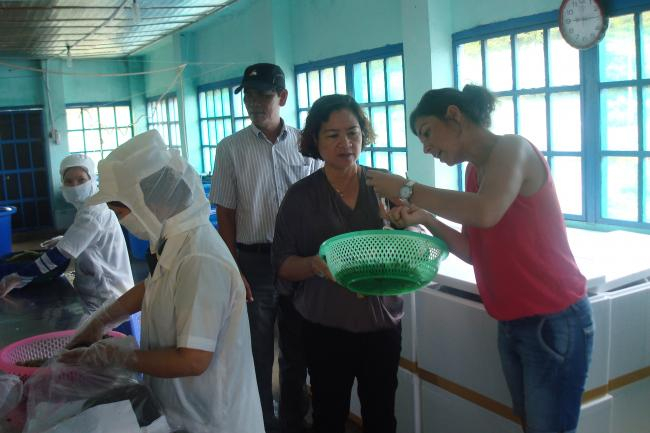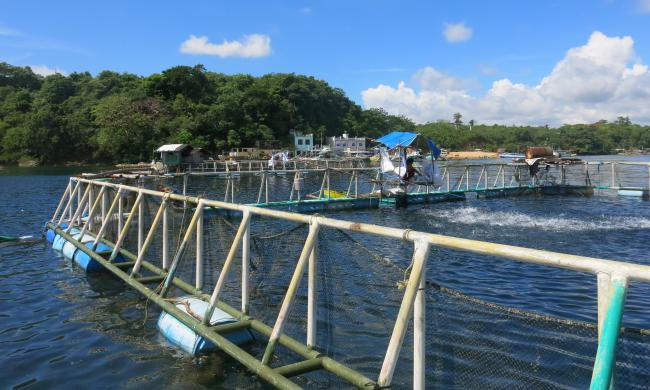Dieser Text ist zur Zeit nur auf Englisch verfügbar...
Junior research group
Microorganisms are found everywhere in the oceans but in coastal regions the interaction of humans and marine microorganisms is most intense. Research priorities of our group include microbial ecology and interactions in coral reef ecosystems, microbial management in aquaculture systems, and the proliferation of pathogenic bacteria. Microbial interactions relevant in biogeochemical cycles, such as vertical fluxes of organic carbon in shallow coastal to open ocean systems are an overarching research focus of our group.
Free-living and particle-attached microbiology
Particles, such as marine aggregates, are heavily colonized by prokaryotic microbes, as they contain high amounts of (labile) organic matter and nutrients. Further offshore, marine aggregates represent an important part of the biological pump whose efficiency also depends on the particle attached microbial activity (i.e. respiration, remineralization of organic matter).
In shallow coastal regions, sinking aggregates do not only determine the sedimentation rates of organic matter to the underlying sediments. Depending on current strength, they can act as vectors, transporting materials from A to B. As these materials may also include pathogenic bacteria, toxic chemicals or simply high amounts of organic matter, our group aims at understanding the role of aggregates as vectors in coastal tropical ecosystems.
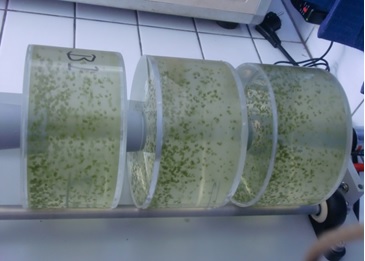
Rolling tank experiments to study marine particles and their associated microbial communities at a high resolution.
Coral reef microbiology
Shallow water corals harbor zooxanthellae and a diverse community of microbial organisms, together described as the coral holobiont. Their well-balanced interplay allowed coral survival and evolution of biodiversity hotspots in nutrient depleted tropical waters. The detailed functions and interactions of the microbial players of the coral holobiont are not yet fully understood. In our group, we investigate the microbial nitrogen cycle in coral holobionts, specifically the contribution of denitrifying pathways. In lab-based experiments we study how excess dissolved organic carbon and elevated temperature influence the microbes involved in the nitrogen cycle of coral holobionts. Field surveys will test the occurrence of the identified pathways across selected species in reefs.
In recent years, human activities increased organic carbon release and nearly doubled the nitrogen input to marine ecosystems. Eutrophication and increased nitrous oxide production contribute to global climate change. This project will therefore broaden our knowledge on the functioning, the effects and the acclimatization potential of coral-associated nitrogen cycling microbes to these changes.
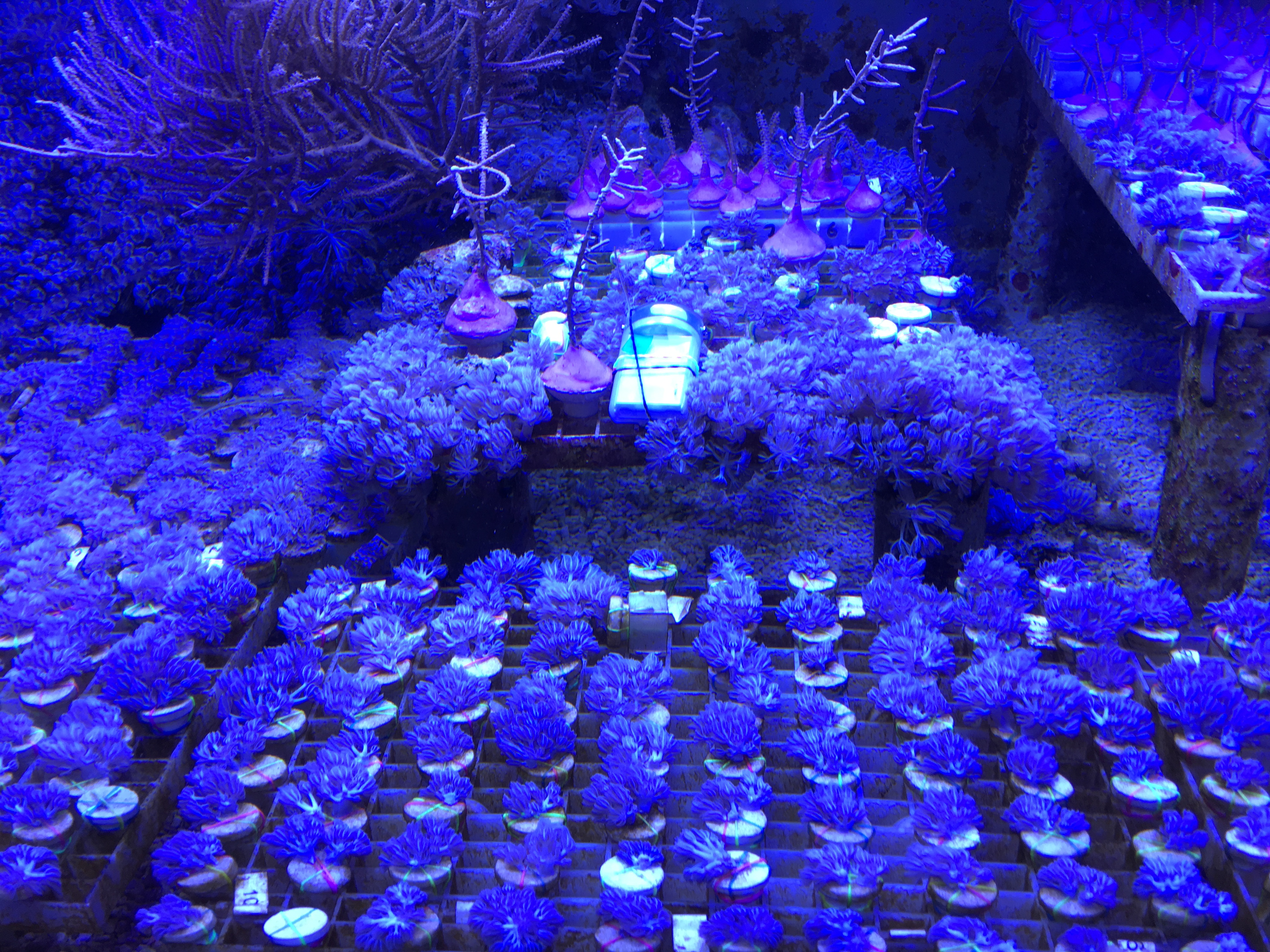
Experimental set-up to study nitrogen cycling in soft coral colonies (collaboration with the Marine Ecology Department at UFT, University of Bremen).
Microbiology of aquacultures
Because of the dramatic decline of natural fish stocks, aquacultures are becoming increasingly important. Ecological threats, such as eutrophication and biodiversity loss, as well as health concerns (e.g. the occurrence of pathogenic microorganisms) lead to current concerns about coastal aquaculture practices. Intense tropical aquaculture practices may lead to anoxic conditions in the water column, the warm temperatures are ideal for the rapid growth of bacteria, including pathogens, and a high organic matter load (resulting from aquaculture wastes) provide an easily degradable food source supporting the proliferation of heterogenic bacteria.
Currently, projects based in Indonesia, Philippines, and Vietnam investigate the abundance, diversity, community structure and function of prokaryotic microbes within and close to aquaculture impacted sites. Furthermore, screening for the occurrence of pathogenic bacteria in shrimp and fish aquacultures are conducted, microsensor measurements of oxygen and hydrogen sulfide are carried out, and water quality parameters are monitored.
Given the importance of aquaculture for the local population and the need for sustainable practices, such research projects are conducted in close collaboration with local scientists and often include mutual visits to foster a productive knowledge exchange.
Sample collection at a seaweed farm in Vietnam.
Milkfish aquaculture in Bolinao, Philippines.
Pathogenic bacteria
Gammaproteobacteria, including the Vibrio species, generally thrive well in warm and estuarine waters with high amounts of organic matter load. Especially in tropical regions the occurrence of Vibrio cholerae is of high concern for human health. V. cholerae is a gram negative, facultative anaerobic bacterium and some pathogenic strains can cause the disease cholera. Eutrophication and climate change in tropical coastal waters may lead to favourable conditions for the growth of pathogenic bacteria such as V. cholerae. Therefore, together with monitoring environmental conditions of tropical coastal waters, we screen for potentially pathogenic microbes and the presence/absence of pathogenic genes using qPCR.
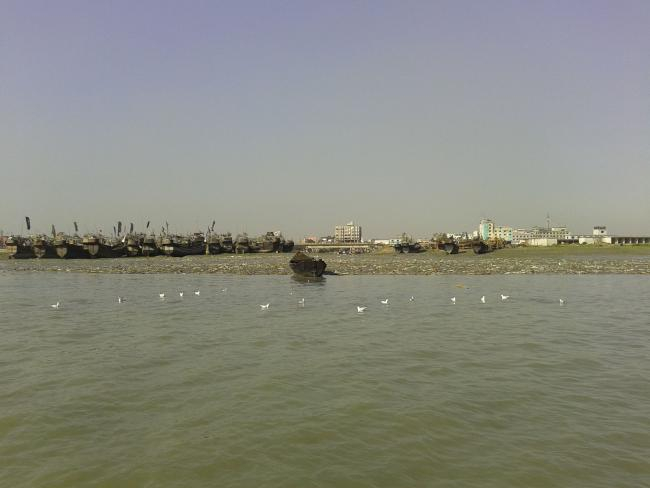
Sewage outflow in a polluted estuary in Bangladesh, where a high abundance of V. cholerae has been detected.
Ongoing projects
Combined RNA- and DNA-based metabarcoding: unravelling the underlying mechanisms of bulk microbial activity in natural environments (2019)
Leibniz Research Alliance INFECTIONS'21 Transmission Control of Infections in the 21st Century (2015 - 2019)
The Mauritanian Shelf as Endmember of Eutrophication – Matter Fluxes, Trophic Networks, Productivity (2015 - 2018)
Effects of anthropogenic changes on the nitrogen cycle microbiome of coral holobionts (2018 - 2022)
Microbial composition in biofloc-based shrimp aquaculture systems (2015 - 2019)
Microbiome in shrimp aquaculture: dynamic changes and bacterial lifestyles (2015 - 2019)
Completed projects
Response of coastal and pelagic marine ecosystems to environmental stressors in the Persian Gulf (2017)
Bacterial impact on aggregate formation under different future ocean scenarios: a mesocosm approach (2013 - 2016)
Seasonal changes in bacterial communities in tropical coastal ecosystems subjected to anthropogenic stress (2012 - 2015)
GeoMICS - Microbial Interactions across Chemical Surveys, characterizing biological function across a persistent oceanographic “hotspot” in the North East Pacific (2011 - 2015)





